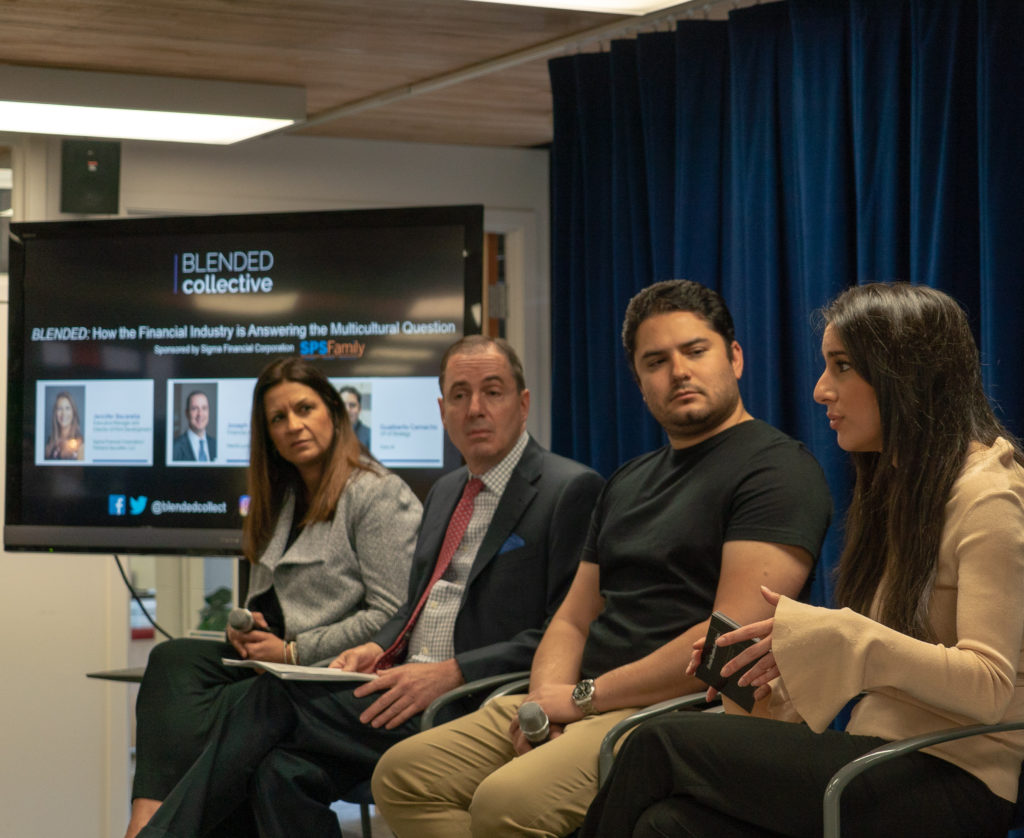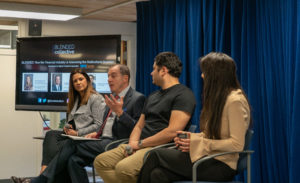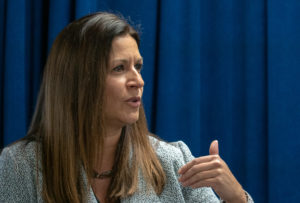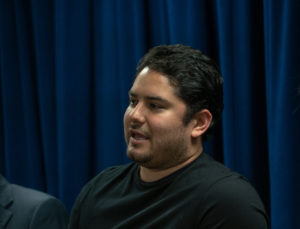Our first Blended panel of 2019 was held at Ann Arbor SPARK sponsored by Sigma Financial Corporation and Parkland Securities LLC. Financial brand success is built on more than money alone because behind dollar signs are people. Creating and implementing strong, audience-centered strategies and campaigns is essential to gaining engagement across diverse populations. Each panelist brought diverse points of view to our engaging discussion about the financial industry that, ironically, lacks in diversity.
Meet the panelists and host (left to right):
- Jennifer Bacarella, Executive Manager and Director of Firm Development, Sigma Financial Corporation/Parkland Securities, LLC (Event Sponsor)
- Joseph DiMauro, Financial Advisor, Merrill Lynch Wealth Management
- Gualberto Camacho, VP of Strategy, Clinc (AI)
- Lydia Michael, CEO and Founder, Blended Collective
Joe, how do you define diversity and multiculturalism in the context of your work?
I look at diversity in the context of being a Financial Advisor in two ways: internally and the people we do business with. The fact is that people like doing business with people like them. And the finance industry is very underrepresented in terms of gender, minorities, and socioeconomic status. Within my company, we are interested in bringing in different kinds of people – and this starts at the university level.
Jen, you mentioned you were only one of seven females in your firm when you first began your career in finance. How have you seen the culture change for women in finance over the past 25 years?
In the 90s, myself and other women would stick out as financial planners and people would assume I was someone’s assistant. People would ask me, “who are you with?” To this day, there are people who don’t believe me when I say that I run this firm. And when people are retiring, most are just worried about bringing in their son. We want people to bring their daughters in, too.
Gualberto, where is the future of AI in finance going to take us? How is Clinc developing its strategy to not miss out on the multicultural consumer segment?
We started in finance because the first virtual assistant was built around personally managing money. Now in financial institutions, we tailor our virtual assistant. We can customize the personality of the virtual assistance based on the person they are working with. This allows institutions to change for specific groups. We have lots of requests for multi-language. The platform can support over 80 different languages. From our perspective, we want to give our clients the tools they need so they can best serve their clients. One interesting thing we see when people interact with AI is what they ask. In the financial space, they would ask questions to the virtual assistant that they wouldn’t be comfortable asking another human since money is such a personal thing. People ask deep, real questions like, “how am I going to pay rent this month?”.
What initiatives do your companies have to build a pipeline in order to break the cycle of homogenous talent?
Joe – At Merrill, we have specific people who have constituent groups that focus on recruiting people in their specific ethnic group. They are recruiting champions. We want to build diverse teams, but also keep in mind that we need to build teams that best serve our client bases.
Jen – This is where being authentic is important. I can inspire women all I want, but if I don’t show what I believe then it doesn’t matter. For example, I am bringing along a coworker who is a black female to join me at an upcoming event to speak. As white female, I shouldn’t just say that I want to be more diverse. I need to show people. The biggest mistake that I see is how we all market. I had received all of these cookie-cutter stock images and expected them to represent diversity by having one person of every major ethnicity group pictured. But in reality, our potential clients want to see who actually works at our firm. Everything about the financial industry is about these glass windows and suits, but it doesn’t have to be.
What does the word blended mean to you?
Gualberto – Diversity. And how people come together. Obviously cultural differences play a role, but so do peoples’ worldviews. Different backgrounds and experiences are what drive diversity of thought. At the end of the day, bringing together diversity of thought helps you and others grow.
Jen – Blending a family together. A lot of times, clients of mine have gone through difficult situations, like divorce. The key comment I hear all the time is patience. When I hear blended, I think of blending listening and patience. When sit back and listen, I don’t have to agree, but just by listening, we become a better person. It rounds you out, rather than being one-dimensional.
Joe – I am into craft cocktails. And I say this because you can have a great drink, but look at the ingredients and say, “wow, how did that produce this?” You can also look at a list of great ingredients but say, “this is terrible!” Blended to me means taking different aspects of life, personality, and experiences and creating a nice craft cocktail that comes out so much better than what you thought it would be.
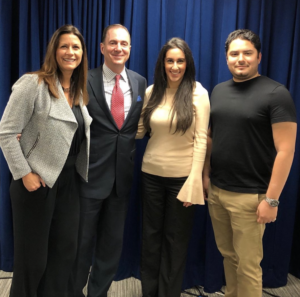 This event is part of our quarterly speaker event series. Stay tuned on more details for our next Blended panel taking place on July 18th in Detroit.
This event is part of our quarterly speaker event series. Stay tuned on more details for our next Blended panel taking place on July 18th in Detroit.
In the meantime, let’s keep the conversation going! Share your thoughts on Instagram, Facebook or Twitter using our hashtag #BlendedCollective.

